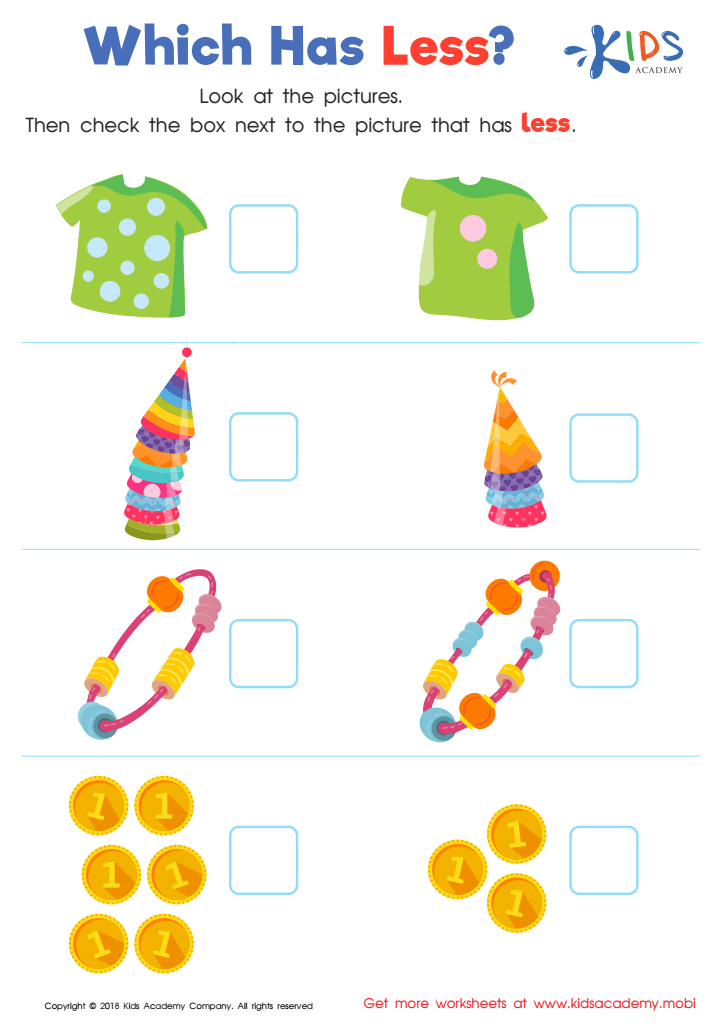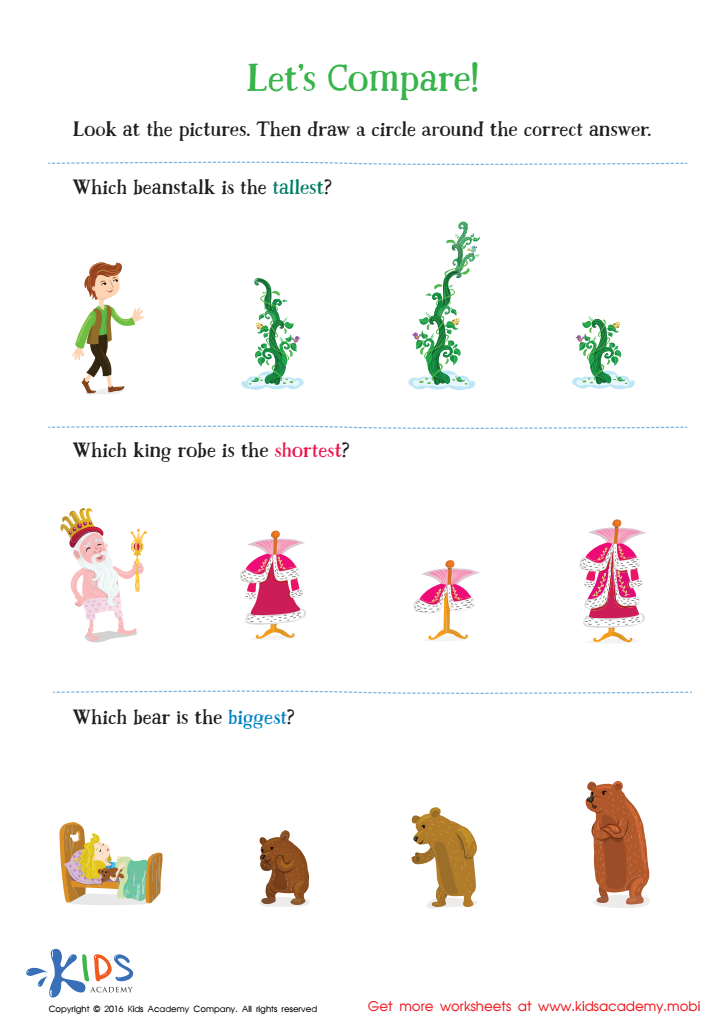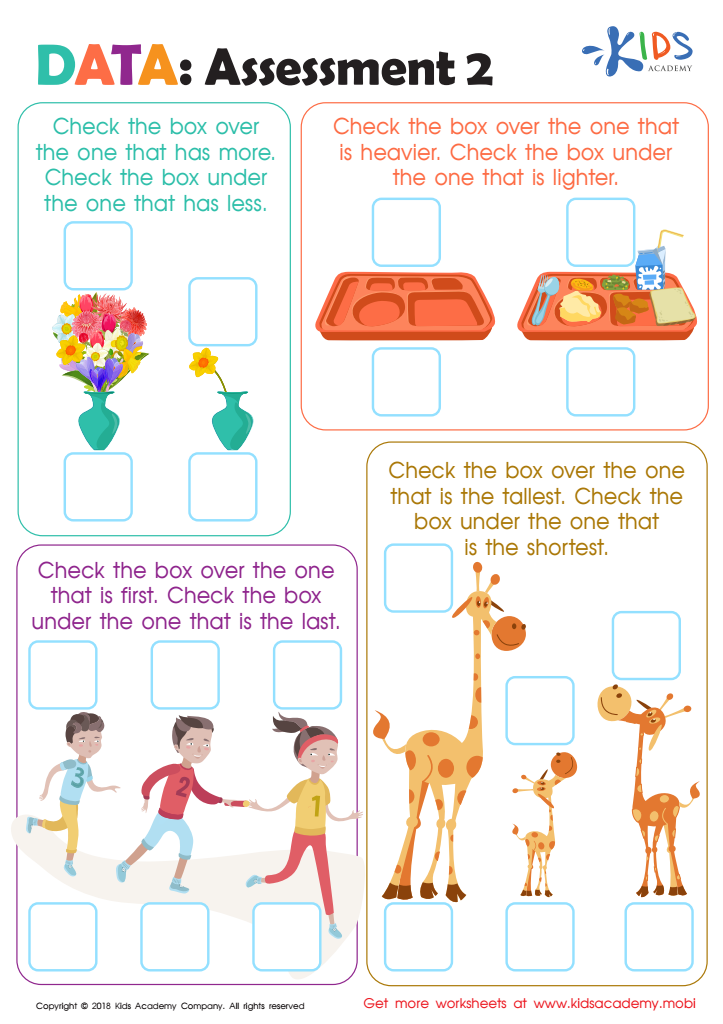Basic Math Skills Comparison Worksheets for Ages 6-7
3 filtered results
-
From - To
Boost your child's math confidence with our Basic Math Skills Comparison Worksheets for ages 6-7. Designed to enhance fundamental math abilities, our worksheets offer engaging exercises that help young learners grasp the concepts of greater than, less than, and equal to. Perfect for first graders, our resources support hands-on learning and reinforce crucial comparison skills. Engaging visuals and interactive formats captivate attention, making learning fun and effective. Designed by educational experts at Kids Academy, these worksheets are an excellent tool for both educators and parents looking to provide a strong math foundation. Download today and watch your child excel!


Which Has Less? Worksheet


Fairy Tale Worksheet: Let's Compare


Data: Assessment 2 Worksheet
Ensuring that children ages 6-7 have strong basic math skills is vital for several reasons, and both parents and teachers play critical roles in this development. At this stage, children are typically in the first or second grade, a period where foundational numeracy skills are established. Mastery of these basic skills, including addition, subtraction, counting, and understanding number concepts, forms the cornerstone for more complex mathematical learning. Students who struggle at this stage may face ongoing challenges that can affect their confidence and academic performance in later years.
Furthermore, early math proficiency is often linked to better problem-solving abilities and logical reasoning, skills invaluable across all academic subjects and everyday life situations. Monitoring and comparing these basic skills allow for timely interventions, providing children with the support they need to keep pace with their peers. Supports can include extra practice, targeted teaching strategies, or even identifying learning difficulties such as dyscalculia early on.
Additionally, developing strong math skills at a young age sets a positive mindset towards learning and fosters an enthusiasm for the subject. Parents and teachers who engage children with fun, interactive, and meaningful math experiences help to demystify the subject, making it more accessible and enjoyable. Thus, prioritizing basic math skills comparison for ages 6-7 can pave the way for future academic successes and a lifelong appreciation for learning.

 Assign to My Students
Assign to My Students
















